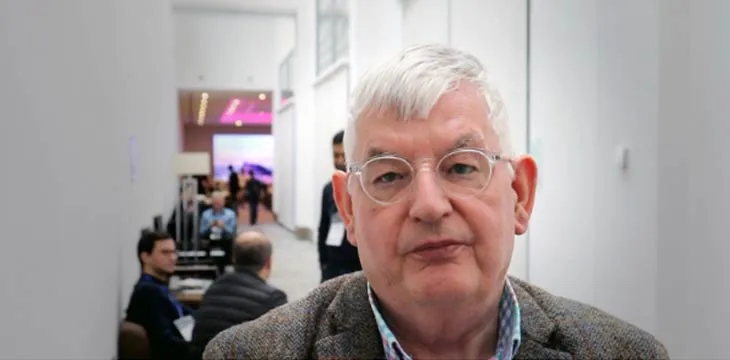|
Getting your Trinity Audio player ready...
|
Ian Dowson is a fintech and blockchain corporate development specialist. Speaking at the recent London Blockchain Week conference, where he presented his Blockchain Global Investment report, he said he believes that increasing volumes being transacted on blockchains every day “illustrate an increasing robustness” in the sector.
Ian sees the development of a blockchain ecosystem as “very similar” to the dramatic economic changes seen when the Internet developed from the early computer networks such as ARPAnet that preceded it. In the blockchain and crypto business, “people are reconfiguring capitalism in a completely different way” – where “you get paid for things you previously paid for” instead of giving your content to third parties, for them to monetise. “Why not have control of it yourself and, as an individual, get some economic value from those actions?”
That kind of development could be bad news for today’s tech giants such as Google and Facebook. Big tech has become bad tech, Ian says. The opportunities for blockchain play into concerns over privacy and ‘who has your data’. While the tech giants are busy with politicians and regulators over those questions, Ian believes, the technology is moving forward, towards the merging of blockchain with AI. Eventually “you as an individual can create your own search agent …This is how their business model might be flipped.”
“Blockchain type systems will threaten [the tech giants’] business model because there’s no single point of profit, single point of control, single point of distribution.” There’ll be a market for systems that allow people to control their own privacy, data and content at a micro level: “I think the future will be that you control all of this.”
But it’s not all plain sailing for the sector. A year ago, “you could put out any ICO and it would get funded”. Today it’s “much more realistic – and I think people’s understanding of what blockchain technologies can do has significantly expanded”. Blockchain businesses have “the problem of every startup: will the user pay money for it?” The industry is moving from “having a technology purpose to having a commercial purpose”.
Some of the most promising examples of commercial business models are in the developing world. Ian highlights how a blockchain money transfer business in Kenya, Bitpesa, has exported its expertise to Japan:
Another potential area for blockchain in the developing world is around the integration of energy businesses, mobile phones and blockchain: “if you’ve got a solar panel on top of your house, you need a mechanism to sell that energy when you’re not using it”. Blockchain systems make that possible. “Then in the background, the energy operator can also integrate grid management into the blockchain”.
Ian says the most “inspiring” example he’s seen of the combination of solar generation and mobile phones is Bboxx, a London-based startup which operates in a dozen countries in Africa and Asia, with almost a million users. Bboxx describes itself as a “next generation utility”. It combines user-generated electricity with solar panels, a battery storage system and the use of mobile phones to monitor and bill or pay its users. Bboxx doesn’t use blockchain yet, but a spokesperson told CoinGeek that it’s “definitely on their radar”.
Ian believes it’s the kind of business that would benefit from blockchain: “you need systems which have trust embedded within them and are able to operate at the micro level, but also the macro level. Blockchain and chain databases can be very advantageous in doing this.”

 07-11-2025
07-11-2025 





